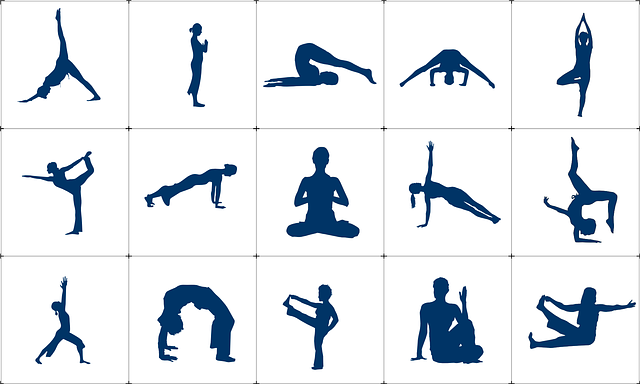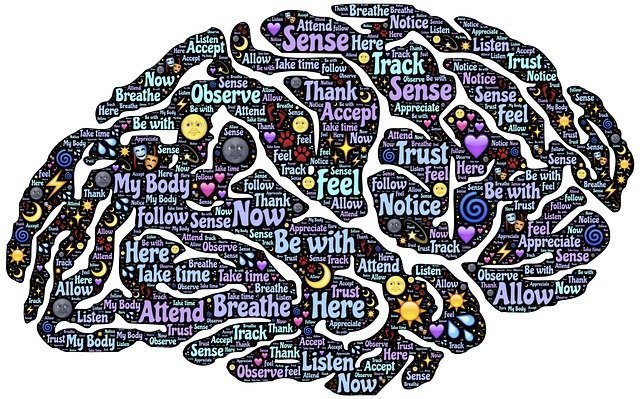Yoga has been around for centuries, but the recent uptake is this holistic activity has led to positive researches about its various physical, mental, and emotional benefits. It is an ancient form of exercise that promotes flexibility, regulates stress levels, and improves mood.
The art of yoga is all about forming connections between your body, mind, and soul, so you feel healthy and strong from within. It encourages brain health by enhancing cognitive performance, improves memory, and helps you stay alert. Therefore, yoga offers far-reaching advantages for people who have dementia.
Symptoms of dementia include gradual loss in memory to decline in the ability to comprehend, reason, and understand. Yoga and meditation improve the signs of dementia and can delay the early onset of the disease in people who practice yoga regularly.
Research on yoga for dementia patients

Alzheimer’s is the leading cause of dementia that affects almost 44 million people globally. While it has no known cure, studies show that yoga and meditation can improve and even prevent symptoms of the debilitating condition.
Research conducted in 2014 suggested for the first time that different factors might reverse memory loss associated with Alzheimer’s disease. During three to six months, nine out of the ten participants exhibited improvement after a complex, 36-point therapeutic program, including yoga and meditation.
Another comprehensive review of up to eleven studies determined that yoga could positively influence brain health, mitigating the age-related memory decline.
Yoga and meditation were also associated with better socialization capabilities and stress management for both Alzheimer’s patients and their caregivers. The holistic program also allowed the patients and caregivers to perform the activity together. Thus, the caregivers were able to relax and rejuvenate while on the job.
Numerous researches are ongoing to analyze the benefits of yoga for dementia patients. You can follow all the recent advancements and the latest research in brain sciences on Dementiatalks to help you be informed about this progressive disease.
Here is what we know about the benefits of yoga for a person with dementia:
Enhanced cognition
The brain is a complex organ, which is adaptable and often thrives when challenged. It is made up of billions of neurons that form infinite connections with each other. The network of these neural connections helps us learn and evolve. Lack of mental exercise can cause our brain to lose its plasticity and, consequently, diminish the memory and the ability to perform daily tasks.
Yoga is not only a physical exercise but also a form of cognitive training. It involves different components, such as chanting, breathing, movement, and concentration. Each component engages multiple facets of the mind and motivates the brain to form novel connections by stimulation of neuroplasticity. Yoga and exercise also boost the brain-derived neurotrophic factor (BDNF), a protein responsible for new neurons.
Mindful meditation, in combination with yoga, is also attributed to improving memory and cognitive capacity. People who practice meditation regularly exhibit less atrophy (degeneration of cells) in the hippocampus, a complex structure of the brain responsible for memory and learning, compared to people who do not meditate.
Stress relief
Stress can be detrimental to the overall wellbeing, including mental health. High levels of the stress hormone, called cortisol, are often linked to brain atrophy and cognition impairment. Chronic stress further triggers inflammation in the nervous system and can cause the onset of Alzheimer’s and dementia. It can also cause diabetes, heart diseases, and autoimmune diseases.
Dementia patients, especially in the early stages, can become increasingly stressed, overwhelmed, and anxious while struggling with chronic disease. Meditative practices and controlled movements allow the mind to relax while subsequently diminishing the stress levels. Mindful meditation also regulates blood pressure, lowers the heart rate, and increases concentration.
Furthermore, since yoga promotes stress management, it helps delay cognition impairment and memory loss. Restorative yoga also inhibits the fight-or-flight response of the body, allowing it to restore and recover. It evokes a sense of peacefulness and soothes the body and mind.
Yoga can also help the caregivers, who experience tremendous amounts of stress, combat depression, and experience relaxation. It can recharge their mind and body, allowing them to cope with the challenges of taking care of a loved one with this debilitating disease.
Physical wellness
Since yoga is a form of exercise, it offers various physical benefits to dementia patients and help them lead a more independent lifestyle. It promotes agility, fine motor skills, and flexibility, thereby reducing injury risks due to a fall.
Breathing exercises can strengthen the lungs and improve their functionality, lower blood pressure, and reduce stress. Regular yoga classes can increase the strength and endurance level of dementia patients, providing more stamina and energy for slightly more challenging physical activities. Furthermore, specific yoga poses to target the core strength and postures, which improve balance and mobility.
Improved sleep quality
Sleep is a vital part of our daily cycle that promotes the restoration of the mind and body. Deep, restful sleep is also imperative for better cognition and learning capabilities. It also controls stress levels and boosts the immune system.
However, most dementia patients suffer from sleep disturbances due to the disease’s impact on the brain. It is the most common and severe in patients with Alzheimer’s disease. The lack of sleep can result in sundowning, causing drowsiness during the day and agitation and restlessness in the evening.
Regularly practicing yoga can improve their sleep quality, allow them to sleep for longer, and make them feel better during the day. Some forms of yoga can be energizing and uplifting and, hence, are better suited for earlier parts of the day.
Restorative yoga is more suitable to incorporate into the bedtime routine to help calm the senses. Mindful breathing exercises before bed can also relax the mind and shut down the body’s stress response, promoting an uninterrupted sleep.
Suitable yoga practice for dementia patients

While it is possible to practice yoga at home, attending a class specifically designed for senior dementia and Alzheimer’s patients can offer a plethora of advantages. It allows the elderly to interact with other people in a similar situation and experience inclusiveness. It can also be enriching and stimulating for both the patients and the caregivers to engage in a synchronize activity.
Gentle yoga classes are designed specifically for senior citizens. They are slow-paced to allow plenty of time for understanding the pose and modifying the posture. These programs aim to make yoga and meditation accessible to people who might be unable to perform more challenging exercises.
Types of yoga that can benefit people with dementia and Alzheimer’s include:

Asanas:
It is a physical form of yoga, which improves flexibility, strength, and balance. It includes various poses inspired by elements found in nature, which are often very simple to emulate. The participants can perform asanas while sitting on a chair, standing while holding something for support, or sitting down on a mat.
Pranayama:
It is a breathing exercise, which dissipates the tension and the overstimulation in the body. Focused breathing allows the participants to strengthen their respiratory organs, promoting the flow of energy throughout the body.
Shavasana:
It is a relaxation technique, often performed at the end of the yoga practice. The participants lie down straight on their backs, arms relaxed on the sides, and the eyes closed, as they focus on their breathing. This technique releases tension from every part of the body, prompting a sense of rejuvenation.
Final thoughts
Yoga offers a plethora of benefits for dementia patients. It improves their cognitive ability, reduces stress, enhances sleep quality, and boosts physical wellbeing. Moreover, it is easily accessible to people with a diverse variety of requirements and capabilities.


























